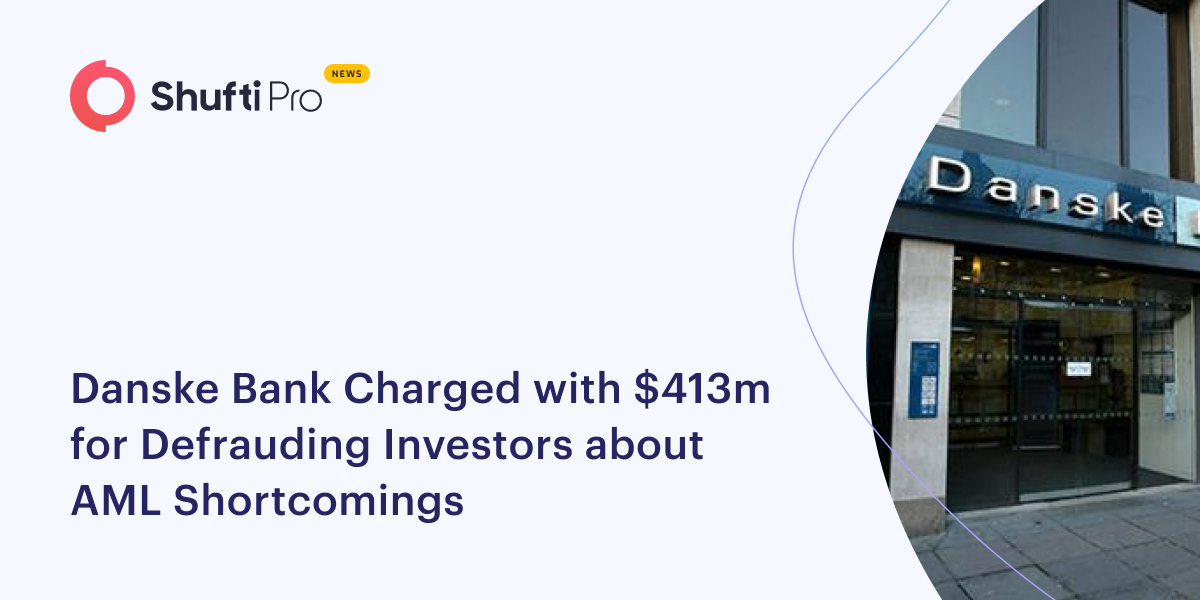Danske Bank Charged with $413m for Defrauding Investors about AML Shortcomings

The Securities and Exchange Commission has charged Danske Bank $413 million for misleading its customers about AML failings.
The SEC (Securities and Exchange Commission) has charged Danske Bank, a multinational financial services firm in Denmark, for defrauding investors about its AML (Anti Money Laundering) compliance program in the Estonian branch. The commission announced the fraud as the bank failed to disclose the concerns posed by the program’s deficiencies. Danske Bank agreed to pay $413 million to settle the SEC charges.
As per the SEC’s complaint, Danske Bank was aware of or should have known the risks when it acquired the Estonian branch in 2007. A substantial portion of the branch’s customers was engaging in transactions involving high money laundering risks, and the internal risk management procedures were not up to the mark to counter the activity. This indicates that the KYC (Know Your Customer) and AML regulations were not being followed and did not comply with the law.
According to the allegations from SEC, the high-risk customers, none of whom were Estonian residents, have utilised Danske Bank’s services for moving billions in suspicious transactions in different nations through the US. It generated 99 per cent of the Estonian branch’s profits.
Furthermore, Danske Bank knew all these alarming transactions and made misleading statements in reports mentioning that the firm was following the AML obligations and had effectively managed the AML risks. The Danske Bank’s failures became apparent, and the share price dropped precipitously.
“Corporations that raise money from the public must disclose information that is material to investors, who then get to decide what risks they want to take. That’s the basic bargain of our securities laws, and it extends to foreign issuers like Danske Bank, which sought to access our capital markets, even though its securities were not registered with the Commission,” said Gurbir S. Grewal, Director of the SEC’s Division of Enforcement.
“But as alleged in our complaint, Danske Bank repeatedly broke that bargain by misrepresenting to its shareholders, including U.S. investors, that it had strong anti-money laundering controls while hiding its significant control deficiencies and compliance failures.”
The SEC alleges Danske Bank with violations and antifraud provisions according to the Securities Exchange Act of 1934.
The financial firm offered to settle the charges by consenting to the entry of a final judgement in the US District Court permanently, ordering to pay $178.6 million in disgorgement, $55.8 million in prejudgment interest and $178.6 million in a civil penalty.
Danske Bank agreed on a $2 billion payment as part of an integrated, global resolution with the SEC, the US Attorney’s office, the Department of Justice, and Denmark’s Special Crime Unit.
Suggested Reads:
SEC Ramps Up Efforts to Tackle Identity Theft in the Captial Market











